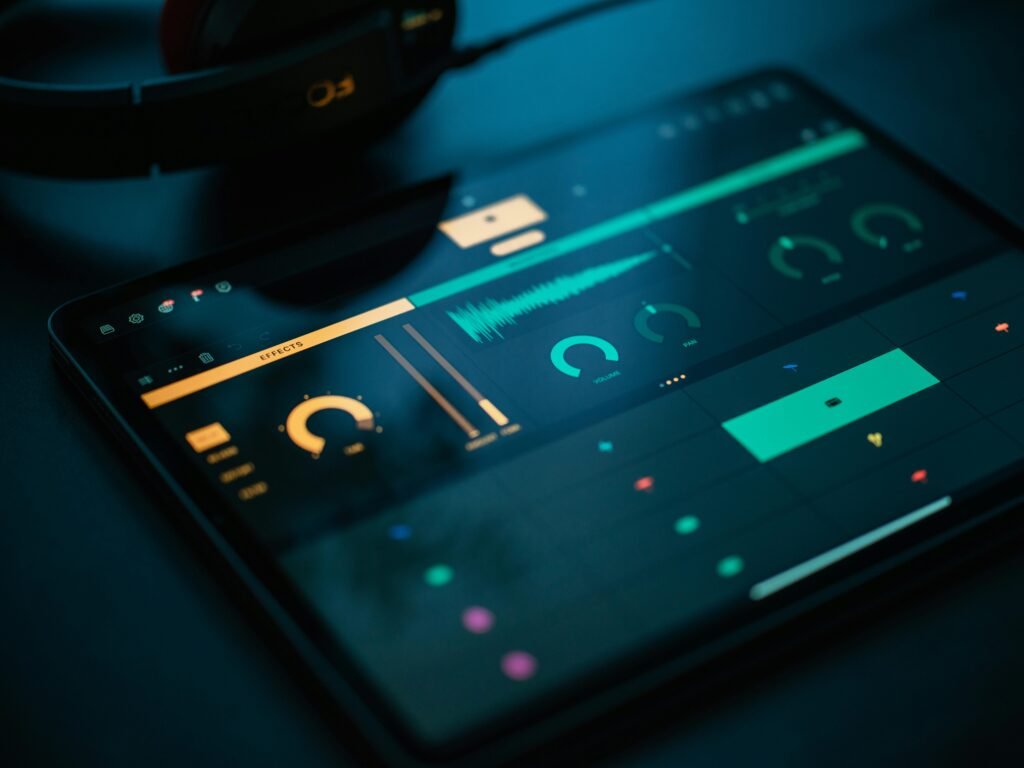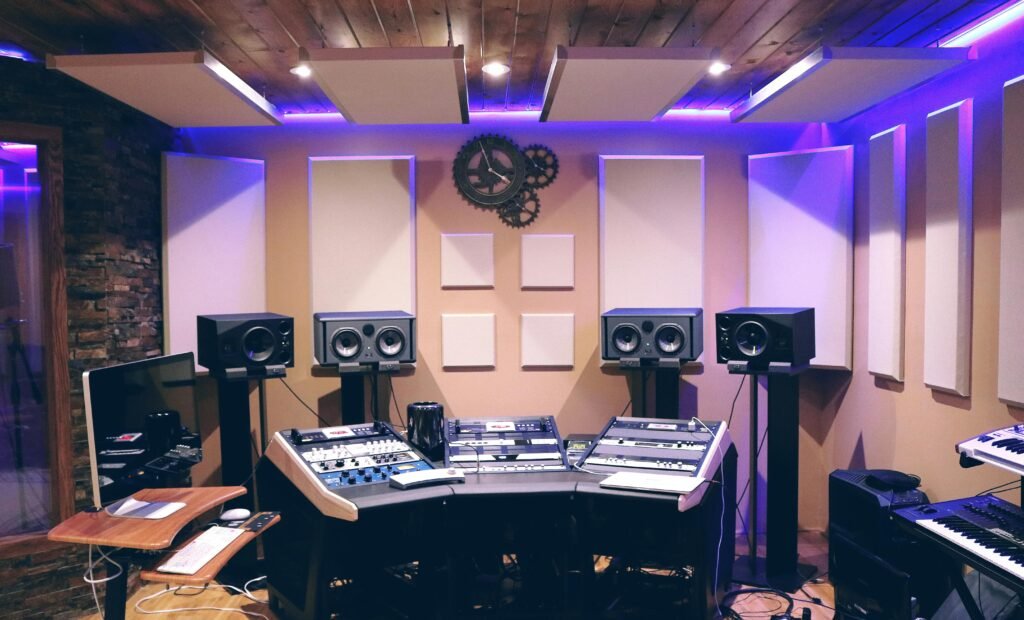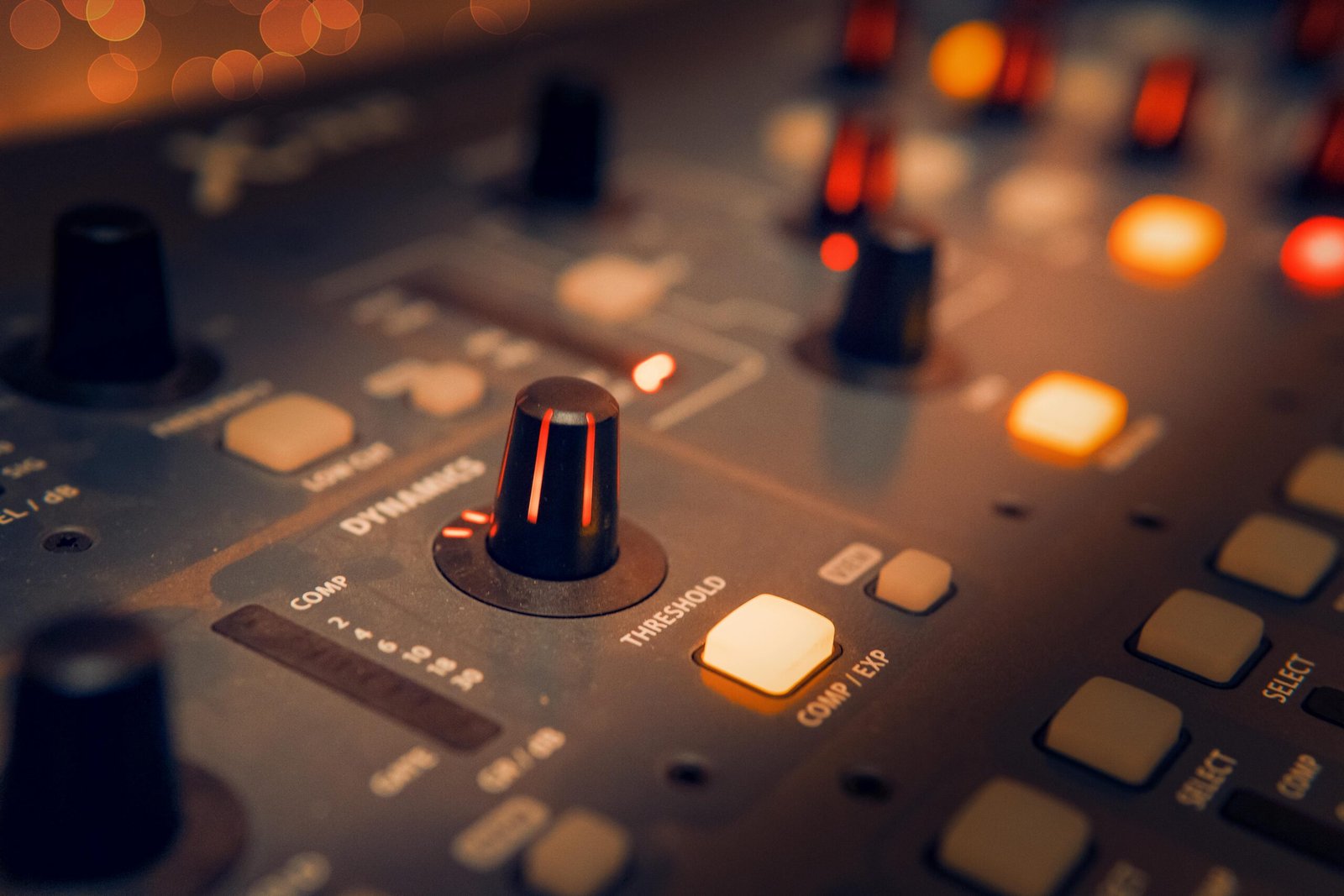Artificial intelligence has revolutionised the world of music. Today, it assists in composing, producing, and publishing songs. Musicians—both amateurs and professionals—can use it to boost their careers. AI accelerates the creative process and enhances sound quality. Discover how AI is transforming music creation and opening new opportunities for artists who want to embrace this technological innovation.
AI and music: a revolution for musicians

AI is reshaping the music industry by redefining how artists create and produce. Deep learning algorithms can compose melodies in seconds, revolutionising the work of composers and musicians alike. Programs such as AIVA and Amper Music generate harmonies across different musical genres, offering artists an endless source of inspiration. For amateur musicians, these tools simplify composition without requiring in-depth knowledge of music theory or notation.
In the studio, AI enhances mixing and mastering, allowing professional-quality sound with less effort. Electronic music, in particular, benefits from advanced sound synthesis that enables a wide range of innovative tones. Universities such as the University of Bonn have already integrated AI into their music education, and some festivals now feature artists who use AI in live performances—highlighting the growing influence of this technology in the music world.
Essential tools every AI-based musician should master
To succeed as an AI-driven musician, you need to master specific digital tools. Music production software (DAWs) such as Ableton Live, FL Studio, and Logic Pro is essential for composing, recording, and mixing music efficiently.
For sound design, plugins like Arturia Pigments and Omnisphere offer complex sound synthesis and unlimited creative potential. Sampling is also key—especially for beatmakers—who rely on tools such as Serato Sample and Kontakt.
AI also plays a major role in music education. Platforms like Yousician help instrumentalists improve their technique by analysing performance and suggesting personalised corrections. Online music courses increasingly use AI-powered learning modules to support musicians of all levels. These innovations are readily accessible and already used by many artists around the world.
Composing and producing music with AI

AI simplifies music composition by creating customised scores in various styles. Platforms such as Ecrett Music and Amper Music assist composers by generating personalised tracks.
Furthermore, self-publishing and independent production allow artists to release their music directly on streaming platforms like Spotify, Apple Music, and SoundCloud. With AI-powered analytics, musicians can better understand their audience and refine their release strategies.
In a home studio, AI streamlines sound creation, enhances recordings, and enables adaptive mixing. These technological advancements provide professional-level tools accessible even to beginners, lowering entry barriers to the music industry and opening vast creative opportunities.
Building a music career with AI
AI plays a key role in shaping a musician’s career. It analyses trends and helps artists tailor their music to audience preferences. Streaming platforms such as Spotify and SoundCloud use algorithms to recommend songs that match listeners’ tastes. Additionally, tools like LANDR automate mastering, ensuring high-quality sound without the need for expensive studios. DJs and live performers also use AI to enhance their stage sets and audience interaction.
AI is transforming the music industry and expanding creative horizons for artists. It simplifies composition, production, and distribution while democratising access to professional tools. Many musicians and institutions have already embraced these innovations. Adapting to this technological shift is essential for any artist aiming to thrive in today’s music landscape.



